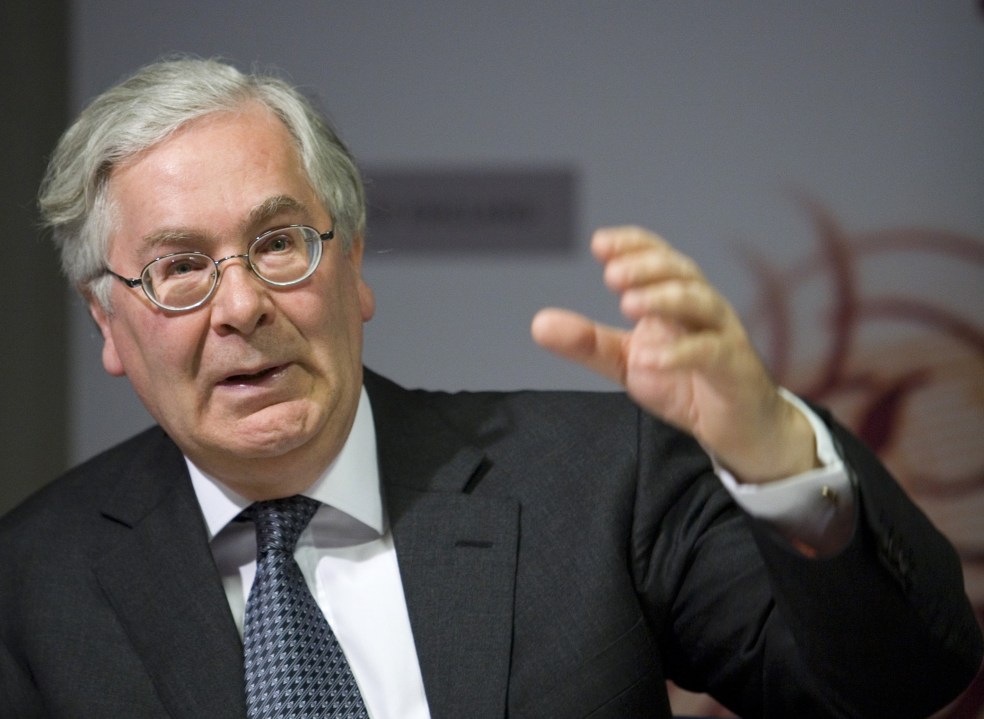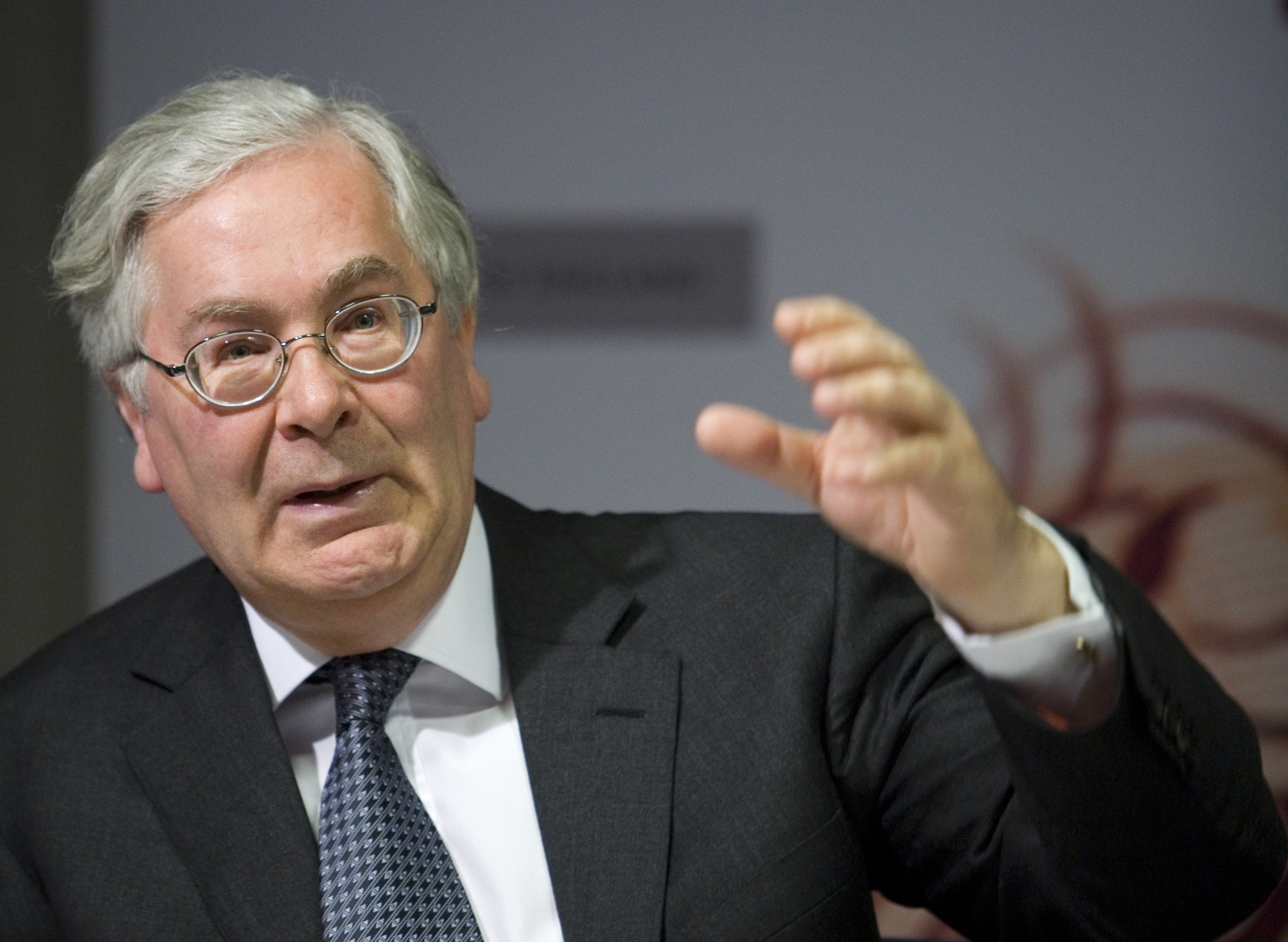 Mervyn King’s words today, in the Financial Stability Report, are probably more
important to the UK economy than George Osborne’s on Tuesday. As James points out in the magazine this week, Osborne’s plans could well turn out to be irrelevant if the eurozone collapses,
flattening whatever is left of Britain’s growth prospects.
Mervyn King’s words today, in the Financial Stability Report, are probably more
important to the UK economy than George Osborne’s on Tuesday. As James points out in the magazine this week, Osborne’s plans could well turn out to be irrelevant if the eurozone collapses,
flattening whatever is left of Britain’s growth prospects.
Basically, King feels that, thanks to the euro crisis, we’re all headed for a credit crunch. This echoes Downing Street’s sentiments yesterday. He says UK banks are well capitalised but should still boost their reserves – not by withholding loans to businesses, but by cutting dividends and bonuses. He also offered one interesting nugget at the press briefing: he said he spearheaded yesterday’s dramatic move by six major central banks to increase liquidity in the global financial system.
As Reuters says:
King has been very careful not to step on fellow central bankers’ toes with regards to EU financial problems, emphasising that euroland policy is none of his business (he repeated that today, saying ‘only the governments directly involved can find a way out of this crisis.’) But his initiating of yesterday’s giant swap deal – if indeed he did initiate it – suggests that, behind the scenes, he may be busy making the Bank of England’s stance felt.‘As far as the swap agreements that were published yesterday by the group of central banks that made the announcement. This was not an action of the FPC [Financial Policy Committee]. It was not involved in it. It was the result of conversations which I initiated as chairman of what used to be known as the G10 governors, now the economic consultative committee among a limited number of central banks.’
At any rate (though one can only push the comparison so far) yesterday’s joint central bank action does bear the hallmark of a Mervyn King solution – a massive pumping in of liquidity, as seen in the BoE’s own Quantitiave Easings I and II. The coordinated move worked for a while, at least to improve sentiment, with global markets rallying late yesterday. But by this morning, investor optimism had all but petered out.







Comments